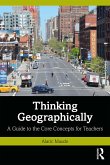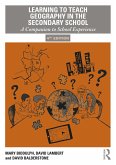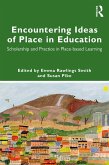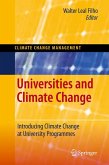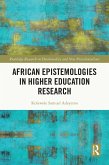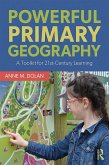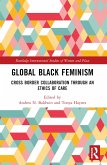Thinking Geographically demonstrates how the concepts of place, space, environment and interconnection teach students new ways of perceiving and understanding the world, the concepts of scale and time teach them ways of analysing the world, while the concepts of sustainability and wellbeing show them how to evaluate and reflect on what they observe, and all eight concepts develop their higher order and critical thinking. To further support teachers, this book includes a chapter on how to teach for conceptual understanding, as well as two chapters that illustrate the application of geographical thinking to an understanding of the effects of land cover change and the problem of regional inequality.
Rich with practical examples, this book is an essential resource for geography teachers, whether already teaching or studying to become one, and for those who teach therm.
Dieser Download kann aus rechtlichen Gründen nur mit Rechnungsadresse in A, B, BG, CY, CZ, D, DK, EW, E, FIN, F, GR, HR, H, IRL, I, LT, L, LR, M, NL, PL, P, R, S, SLO, SK ausgeliefert werden.
An excerpt from a review by Stephen Legg, Interaction Journal, Vol 52, No.1, March 2024
"This book has been an excellent resource when thinking more deeply about the concepts within our curriculum; Maude breaks down each concept, ... [and] also provides a summary and a 'how could you use this chapter in teaching?' box, which has been particularly useful to refer to.
Our A level students often struggle to use the concepts of space and time throughout their essays. Alongside other strategies, [the chapters on space, and scale and time] were used to break down these two concepts into smaller chunks for the students, and to give them some ideas of how they can be applied. Students found this useful; essays are beginning to improve and concepts are woven throughout as a result."
Excerpts from a review by Laura Bytheway, Head of Geography at Ormiston SWB Academy, UK, in Teaching Geography, Vol 49, No 3, Autumn 2024.
"Thinking Geographically is a text, which exceptionally delivers to the intended audience of secondary school teachers, while also providing a worthwhile resource for students themselves. Through describing key theories, concepts, and methods of approaching research in detail, the text also explores how we, as geographers, organise and analyse research data. Such inclusions position Thinking Geographically as a rounded, comprehensive introductory text.
Secondary school students, undergraduate tertiary students, and even postgraduate students less familiar with geography-specific concepts and language could all view the book as a decidedly useful resource."
- Excerpts from a review by Connor Goddard, Associate Lecturer in Geography, Curtin University, Australia, in Geographical Research, online 26 June 2025.



